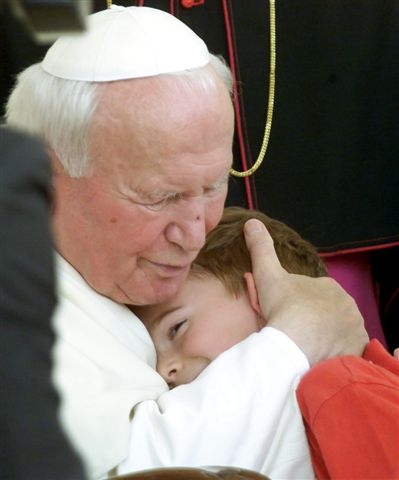The Vatican has issued a much anticipated statement on the child abuse scandal in the Irish Church following publication of the Murphy Report on the Archdiocese of Dublin.
The communique reads:
"Today the Holy Father held a meeting with senior Irish Bishops and high-ranking members of the Roman Curia. He listened to their concerns and discussed with them the traumatic events that were presented in the Irish Commission of Investigation’s Report into the Catholic Archdiocese of Dublin.
After careful study of the Report, the Holy Father was deeply disturbed and distressed by its contents. He wishes once more to express his profound regret at the actions of some members of the clergy who have betrayed their solemn promises to God, as well as the trust placed in them by the victims and their families, and by society at large.
The Holy Father shares the outrage, betrayal and shame felt by so many of the faithful in Ireland, and he is united with them in prayer at this difficult time in the life of the Church.
His Holiness asks Catholics in Ireland and throughout the world to join him in praying for the victims, their families and all those affected by these heinous crimes.
He assures all concerned that the Church will continue to follow this grave matter with the closest attention in order to understand better how these shameful events came to pass and how best to develop effective and secure strategies to prevent any recurrence.
The Holy See takes very seriously the central issues raised by the Report, including questions concerning the governance of local Church leaders with ultimate responsibility for the pastoral care of children.
The Holy Father intends to address a Pastoral Letter to the faithful of Ireland in which he will clearly indicate the initiatives that are to be taken in response to the situation.
Finally, His Holiness encourages all those who have dedicated their lives in generous service to children to persevere in their good works in imitation of Christ the Good Shepherd."
The independent report was commissioned by the Irish government to investigate the way in which the Church dealt with allegations of sexual abuse of children by priests in Dublin over the period 1975 to 2004. It concluded that "the Dublin Archdiocese's pre-occupations in dealing with cases of child sexual abuse, at least until the mid 1990s, were the maintenance of secrecy, the avoidance of scandal, the protection of the reputation of the Church, and the preservation of its assets. All other considerations, including the welfare of children and justice for victims, were subordinated to these priorities. The Archdiocese did not implement its own canon law rules and did its best to avoid any application of the law of the State".
Obviously a dreadful story which has done immense damage to the Church. It also does no good to skate over this and pretend it never happened.
The Holy Father has handled this very well, taking his time to read the report before responding, and holding this 'summit meeting' at the Vatican. John Paul II did the same in 2002 soon after the US clerical abuse scandal broke.








